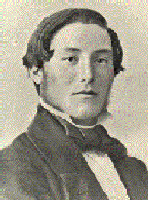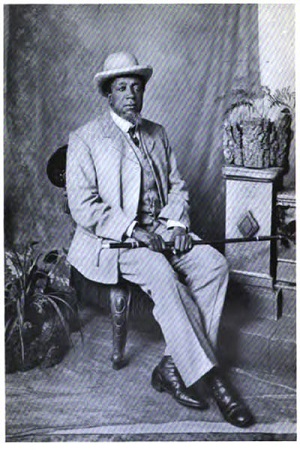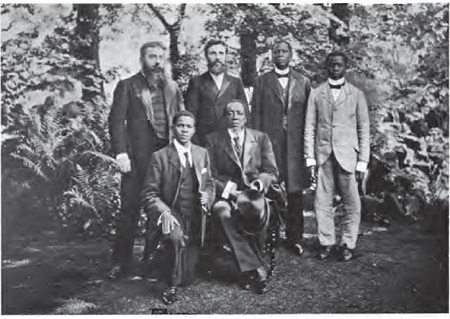Classic DACB Collection
All articles created or submitted in the first twenty years of the project, from 1995 to 2015.Coillard, François (B)
 Reverend François Coillard, one of the leading Protestant missionaries in southern Africa, was a supporter of British imperialism. Born of a French Huguenot family, he came under evangelical influence early in life and volunteered for missionary work at age 20. He was trained at the University of Strasbourg and in Paris until 1857, when he was ordained and sent to Basutoland (now Lesotho) by the Paris Evangelical Mission Society.
Reverend François Coillard, one of the leading Protestant missionaries in southern Africa, was a supporter of British imperialism. Born of a French Huguenot family, he came under evangelical influence early in life and volunteered for missionary work at age 20. He was trained at the University of Strasbourg and in Paris until 1857, when he was ordained and sent to Basutoland (now Lesotho) by the Paris Evangelical Mission Society.
After being held up for two years in Cape Town by regional warfare, Coillard was finally able to reach Basutoland, where he worked until 1877. He struggled against polygamy and witchcraft, at first without much success due to the king’s hostility. He did, however, become an important intermediary and peacemaker between the Sotho and the English, whom he invariably favored over the Afrikaners. In 1866 he was forced out by the Afrikaners but was able to return after the British protectorate was established. He had become influential in the area, especially after the conversion of MOSHWESHWE I in 1870.
In 1877 he and his family crossed the Limpopo River to start a mission among the Shona. The Coillards were arrested by Chief Lobengula and expelled. Taking the advice of the Sotho leader KHAMA III, Coillard entered what is now Zambia and was again turned back. Finally, Chief LEWANIKA of the Lozi people of western Zambia (Barotseland) invited him to stay, and he established a flourishing mission.
Coillard found himself in an ambiguous position. He negotiated between Lewanika and Cecil RHODES’s British South Africa Company, which was then encroaching on various communities in the area. He complained to Rhodes that while he ‘could not serve two masters’, he was willing to bring the two together. He helped to establish a treaty in 1890, which he honestly believed was in the best interests of the Lozi. He later discovered, however, that Rhodes expected him to be responsible for Lewanika’s observance of the agreement.
In 1889, Coillard published his memoirs, Sur le haut Zambèze, which was translated into English in 1897. In 1895 he became ill and spent several years recuperating in Europe. He returned in 1899 to what had become Northern Rhodesia and to continual struggles within his mission. A quarter of his assistants had died, and half had quit under the difficult conditions. In 1903 an African independent church movement won away many of his converts. His achievements were not in numerous converts but in the trust he engendered among the British authorities and the diligent ways in which he attempted to bring the useful aspects of Western society to Barotseland. He was sincere in his belief that only British colonial government would end civil strife among the Lozi and protect them from their enemies and the exploitation of white gold-seekers. While he refused to become an official imperial agent, he was a decisive figure in the colonization of Zambia.
Norbert C. Brockman
Bibliography
Lipschutz, Mark R., and R. Kent Rasmussen. Dictionary of African Historical Biography. 2nd edition. Berkeley: University of California Press, 1986.
Dictionary of National Biography. London: Oxford University Press, 27 volumes, 1921-1959.
Photos:
[1] Coillard of the Zambesi by C. W. Mackintosh (New York: American Tract Society, 1907).
[2] Coillard of the Zambesi by C. W. Mackintosh (New York: American Tract Society, 1907).
Additional reading: Coillard, François. On the Threshold of Central Africa. (1971).
This article is reproduced, with permission, from An African Biographical Dictionary, copyright © 1994, edited by Norbert C. Brockman, Santa Barbara, California. All rights reserved.
Photo Gallery





